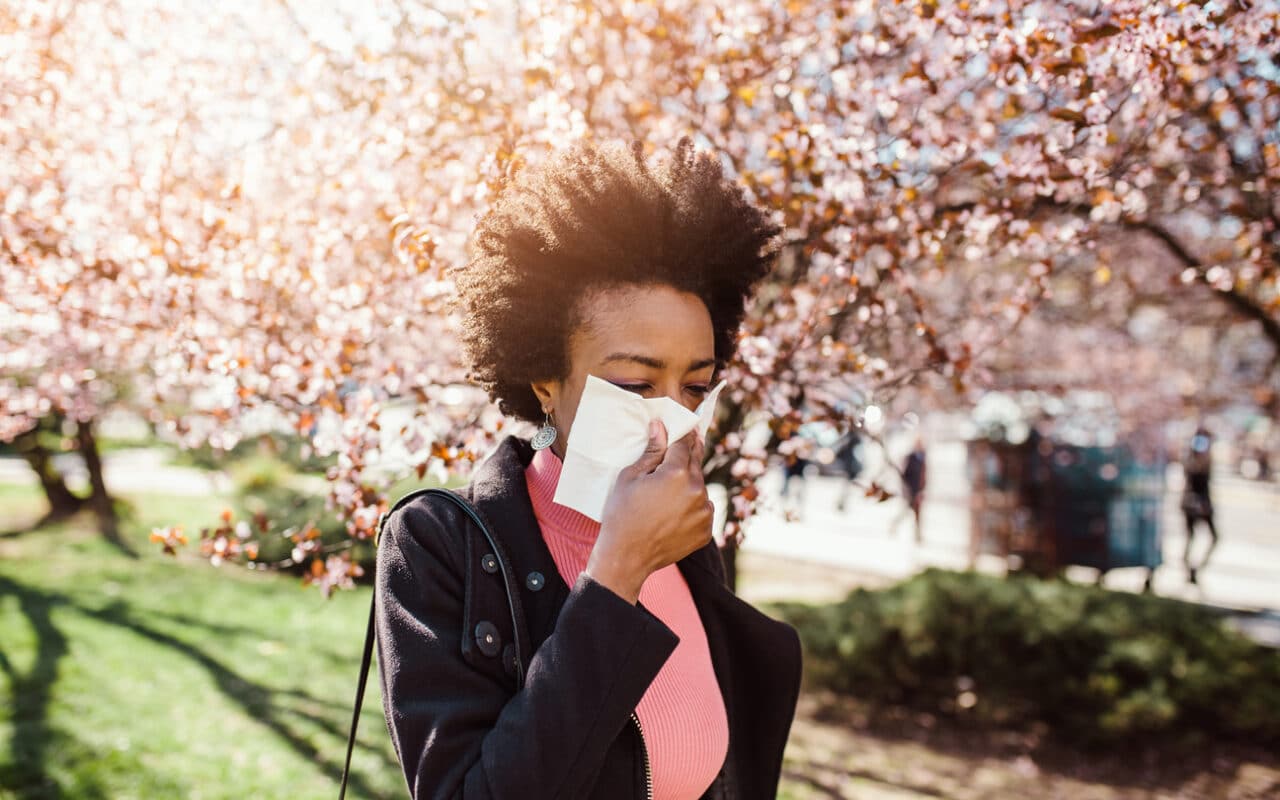With the arrival of spring, many of us eagerly anticipate the blossoming of trees and the warmth of sunnier days. However, for a significant number of people, this season also marks the return of tree pollen allergies, bringing a less welcome burst of sneezing, itchy eyes and nasal congestion. In fact, more than 100 million people experience some form of allergies each year.
Tree pollen allergies are the result of our immune system’s overreaction to the pollen from trees like oak, birch and cedar. For some, tree pollen can provoke a scratchy throat, persistent cough or an overall feeling of fatigue.
Symptom Management Options

In preparation for spring, there are some symptom management options allergy sufferers can use to find relief. Allergy symptom management options can include:
- Over-the-counter medications: Antihistamines are the first line of defense for many allergy sufferers, addressing symptoms such as sneezing, itching and a runny nose. Nasal corticosteroids can also provide much-needed relief for inflamed nasal passages.
- Nasal irrigation: Using a saline solution to rinse nasal passages can effectively remove pollen and mucus, offering a reprieve from congestion.
- Barrier methods: Protect your eyes with sunglasses and wear hats to prevent pollen from landing on your face and hair. Consider wearing a mask during peak pollen times if you must be outdoors and change your clothing when returning indoors.
- Limiting exposure: Check daily pollen counts and stay indoors when they’re high, especially on windy days when pollen can be swept into the air. Keeping windows closed can help reduce indoor pollen levels. Be sure to wipe down pets after returning indoors as well.
- Hygiene routines: Showering after being outdoors and changing into clean clothes can reduce pollen that might be carried into your home.
- Allergy immunotherapy: For long-term relief, allergy immunotherapy, which gradually introduces small amounts of allergens to the body, can help build tolerance over time. This can be administered through allergy shots or sublingual drops.
If your symptoms persist or significantly impact your daily activities, contact your doctor. Medical professionals can offer tailored treatment plans, prescribe medication and provide referrals to allergy specialists if needed.
Tree pollen allergies don’t have to overshadow the joys of spring. With a proactive approach and the right combination of treatments, it is possible to minimize symptoms and enjoy the changing season.
Contact Spartanburg | Greer ENT & Allergy to schedule an appointment to learn more about your allergies and explore symptom management options.
